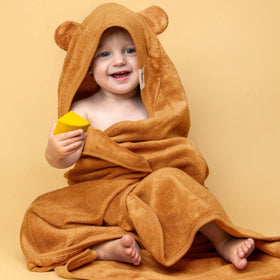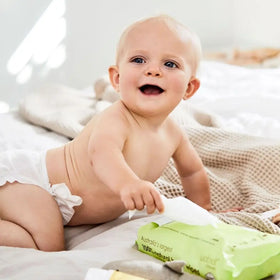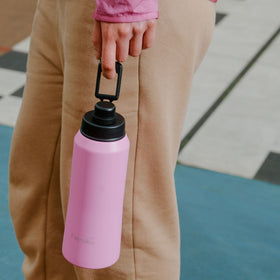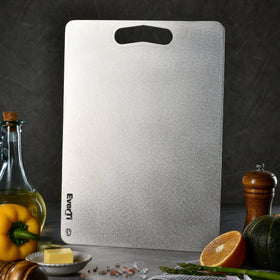
Recycling At Home Made Easy: How To Recycle Just About Anything
There are so many benefits to recycling. When you collect, ship, and process fewer raw materials into new products, some of the benefits include:
- less air and water pollution
- use less energy
- saving animals and habitats from being destroyed.
When you repurpose old stuff, you also reduce the amount of rubbish sent to landfill. It's possible to save a lot of resources by recycling.
According to the 2020 National Waste Report, Australia’s recycling rates went up to 60% in 2018-2019. It’s 2% higher in the last two years. It means Australians are finding more ways to recycle and reduce their waste.
We've made great strides in making more products recyclable and more sustainable. There’s still so much waste that ends up in landfill, but with a little knowledge we can recycle even more.
What can be recycled at home?
There are basic materials that you can recycle at home. First, there’s paper and cardboard. Examples of these recyclable items are office paper, corrugated cardboard, newspaper, and magazines.
You can also recycle containers or packaging. This can include plastic, glass, aluminium, and steel. Some examples are:
- Plastic soft drink and water bottles
- Aluminium cans and foil
- Tin and steel cans
- Glass bottles and jars
- Plastic food containers
Always check that the items are dry and clean before putting them into your home recycling bins. Otherwise, you risk contaminating all the recyclables in the load.
Read More: What's the difference between bioplastic and recycled plastic?
Non recyclable materials: items that aren’t suitable for home bins
There are plenty of items that can't go into recycling bins for home, but can still be recycled. It's important to separate them from the things you can recycle right in your house. Below are some of the most common materials:
- Aluminium (clean)
- Batteries
- Printer cartridges
- Electrical appliances, blankets, cables
- Mobile phones
- Food and vegetable scraps
- Garden organics
- Tyres
- Cellophane
- Ceramics
- Clothing/shoes
- Disposable nappies
- Needles, syringes and sharps
- Photographs
- Polystyrene
- Tissue and toilet paper
- Window panes, light bulbs, mirrors
Reuse Reduce Recycle At Home
Spring cleaning often goes along with spring decluttering. It's a great time to create more space by getting rid of stuff you and the kids have outgrown or don't need anymore. Before you throw it out, there may be somewhere that you can donate it. It might not be useful to you anymore, but someone else could need that very thing. You could also help those in need. Remember to rehome, reuse and recycle, and keep it out of the rubbish tip.
It's surprising how many household and personal items you can donate. When we do see a widely publicised campaign like Planet Ark's printer cartridge recycling campaign that has kept over 49 million cartridges out of the landfill, we know we can make a difference. Imagine if every household donated one extra bag of unwanted goods each year instead of throwing them away.
Here are our top ideas for common unwanted items when recycling at home and the companies that take them.

Kids Shoes
It's not just baby clothes that can be recycled, you can also recycle children's shoes. Kids grow out of shoes so fast. Good thing there are plenty of organisations rehoming perfectly useful shoes to those in need.
- You can 'pair it forward' through Soles 4 Souls by donating your shoes at Mount View Primary School in Glen Waverley, Victoria (more locations opening soon). So long as they're not damaged, ripped, or have a high heel, they’ll be given to disadvantaged men, women, and children.
- Boots For All helps disadvantaged Australian children and adults get involved in sports by providing them with essential sports equipment.
- Shoes for Planet Earth recycle running shoes to communities in need, both local and international. They have drop off points throughout the country. They'll also instruct you on how to wash and tie your preloved shoes for donation.
A few tips on donating shoes:
- Give them a clean, either by hand or by popping them into the washing machine;
- Tie them in matching pairs so that they stay together;
- No holes and good soles, please - the shoes need to last a whole winter;
- Send any spare shoelaces and inner soles, too, as many shoes come without these;
- Why not pop in a couple of dollars when you send your shoes to help get the shoes to those in need?
Image: Boots For All
Bras
This is an unusual one. You'd be forgiven for thinking that bras aren’t fit for recycling. It's in the underwear category, after all. But bras don't come cheap! For many, bras are unobtainable or unaffordable.
If you've still got a bra in the drawer that you don't wear because it's not quite the right size or fit, there's Support the Girls. The organisation accepts Australian donations of bras or funding.
Electronics
If it feels like there's a new iPhone released every year, it's because there is! Many of us don't feel the need to upgrade this often. But the truth is, electronics aren't designed to last anymore. If you're not sure how to recycle old electronics, here's some ideas:
- Give Now has compiled a list of places to donate your unwanted or outdated electrical goods. Items can range from printer cartridges to mobile phones, computers, tablets, and other 'e-junk'.
- ARP accepts your old mobile phones for donation to a charity of your choice.
- Mobile 4 Charity will repair and recycle your old mobile phones. And then sell them to generate funds for those in need.
Image: Mobile 4 Charity
Reading Glasses
Time to upgrade your lenses? Need new frames? HCF will take your old specs in partnership with Lions Recycle for Sight - a program distributing used glasses to poor communities in Africa, Asia, and the Pacific.
OPSM’s charity partner, OneSight, accepts eyewear donations, too.
Musical Instruments
Kids can get so much out of learning to play music. But they don't always stick with their instrument. If you're not using that first keyboard or violin, you can donate these to Simply for Strings and ACMF. ACMF helps disadvantaged children access music programmes, and helps out with free musical instruments. It's music to my ears!
There’s also Music for Refugees. Music for Refugees has been providing musical instruments to refugees in immigration detention centres or on humanitarian visas.
Baby Goods
Baby items such as cots and prams must be built to some pretty high standards to be acceptable in Australia. So, by the time you've had your last child, your pram is probably still in good condition.
St Kilda Mums in Melbourne rehome new and preloved baby gear and nursery equipment to families in need. There are some small, local organisations around the country. So, if you're not in Melbourne, be sure to search on Give Now. You can also ask around in your local community.
Image: St Kilda Mums
Kids Toys and Books
Your local St Vinnies, Salvos, Savers, or most op shops will welcome any books and toys that are in working order and have not been chewed! Also, think about local businesses that have a children's corner in their waiting room. Donated toys have probably kept your kids occupied (and kept you sane) for hours in doctor's surgeries. Many businesses will be grateful for your donation of preloved toys.
More recycling ideas: check out these companies who recycle
There's a recycling company that will recycles more different types of waste than you probably realised could even be recycled. They're called TerraCycle. They operate in more than 20 countries, including Australia.
TerraCycle has partnered with individual collectors, major companies, retailers, manufacturers, local councils, and small businesses to divert all sorts of waste from landfills. They have three major collection platforms: Free Recycling Programs, Zero Waste Box, and Large Scale recycling.
Image: TerraCycle
Free Recycling Programs
TerraCycle's free recycling programs partner with brands, manufacturers, and retailers to help collect and recycle hard to recycle waste. They offer these programs around the world. You can join as many as you like.
In Australia, there are free recycling programs for beauty products, kid’s pouches, and snack packaging. Think L'Occitane products, Nescafe Dolce Gusto capsules, and heaps more.
First, choose the program you'd like to be a part of. Then start collecting, and send TerraCycle your waste.
Zero Waste Box Platform
Are you aiming to have zero waste at work or at home? Not sure what it even means? TerraCycle defines zero waste as living and working without generating any kind of waste.
"All recyclable materials are recycled, all organic materials are composted, and items that cannot be recycled or composted are avoided and substituted with waste-free alternatives." So, to help achieve this, TerraCycle has the Zero Waste Boxes.
If you don’t know how to recycle old electronics, these boxes will help do that for you. These boxes recycle all sorts of rubbish. These can range from coffee capsules to office gadgets. Just choose your waste stream. Buy the right sized box, collect your waste, and then send it to TerraCycle.
Image: TerraCycle
Large Scale Recycling
TerraCycle does large scale recycling, including:
- Industrial recycling
- Office waste recycling
- Closed loop recycling - where waste gets upcycled and made into new products.
Recycle soft plastics with REDcycle
Did you know that you can recycle soft plastics at Coles supermarkets around Australia? All those plastic bags that won't go into your recycling bin will turn into something more useful. These can turn into outdoor furniture, playgrounds, and signs for communities and schools. How good is that? Just pop any of the following plastics into a REDcycle bin in your local Coles.
- Plastic shopping bags
- Bread bags
- Frozen food bags
- Rice and pasta bags
- Biscuit wrappers
- Lolly packets
- Cereal box liners
- Fruit and vegetable bags
- Old green bags
- Newspaper and magazine wrappers
- Any soft and flexible plastics that you can scrunch up in your hand!
There are REDcycle bins in over 800 Coles supermarkets throughout Australia. See the list of Coles supermarkets with REDcycle bins here.
All plastics collected are sent back to RED Group’s facility for initial processing. These are then delivered to Replas to undergo their final conversion.
You can also find recycling near you by checking Waster or Planet Ark.
Image: Replas
Keeping stuff out of landfill
There are so many ideas and options for keeping stuff out of landfill. Before you throw anything away, check to see if there's a way to recycle, reuse or rehome it.

















